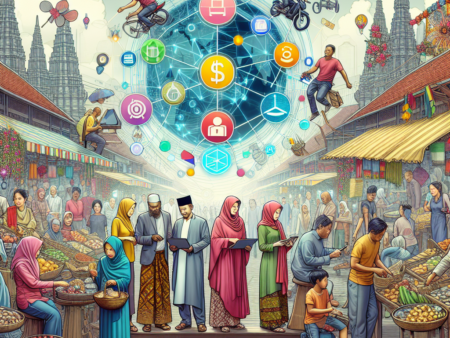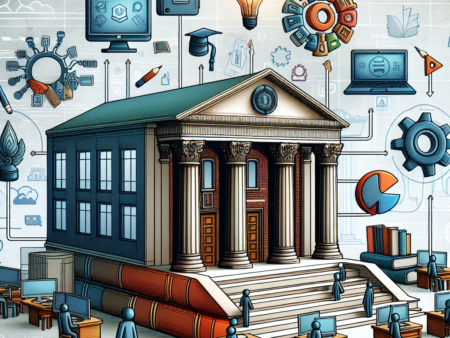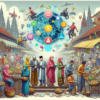Mempertahankan warisan budaya melalui platform digital untuk mempromosikan dan melestarikan kekayaan budaya lokal.
Melestarikan Budaya Lokal Melalui Platform Digital
-
Table of Contents
- Introduction
- The Importance of Preserving Local Culture
- 1. Cultural Identity
- 2. Cultural Heritage
- 3. Economic Opportunities
- The Role of Digital Platforms
- 1. Online Archives and Libraries
- 2. Social Media and Online Communities
- 3. Digital Storytelling
- 4. E-commerce and Online Marketplaces
- The Impact of Digital Platforms on Cultural Heritage
- 1. Increased Awareness and Appreciation
- 2. Preservation of Intangible Cultural Heritage
- 3. Economic Empowerment
- 4. Collaboration and Exchange
- Conclusion
Introduction
Indonesia is a country rich in cultural diversity, with over 300 ethnic groups and more than 700 languages spoken across its archipelago. This cultural wealth is a source of pride for Indonesians, but it also presents a challenge in preserving and promoting local cultures. In recent years, however, the rise of digital platforms has provided new opportunities for the preservation and promotion of local culture. This article will explore how digital platforms are being used to preserve local culture in Indonesia and the impact they are having on cultural heritage.
The Importance of Preserving Local Culture
Local culture plays a vital role in shaping the identity and heritage of a community. It encompasses various aspects such as language, traditional arts, crafts, music, dance, and rituals. Preserving local culture is crucial for several reasons:
1. Cultural Identity
Local culture is an integral part of a community’s identity. It reflects the unique history, values, and traditions of a particular group of people. Preserving local culture helps communities maintain their distinct identity in an increasingly globalized world.
2. Cultural Heritage
Local culture represents the collective heritage of a community. It is a repository of traditional knowledge, skills, and practices that have been passed down through generations. Preserving local culture ensures that this heritage is not lost and can be enjoyed by future generations.
3. Economic Opportunities
Local culture can also be a source of economic opportunities. Traditional arts and crafts, for example, can be marketed as unique products that attract tourists and generate income for local communities. By preserving and promoting local culture, communities can tap into these economic potentials.
The Role of Digital Platforms
Digital platforms have revolutionized the way information is shared and accessed. They have also opened up new possibilities for preserving and promoting local culture. Here are some ways in which digital platforms are being used in Indonesia:
1. Online Archives and Libraries
Digital platforms provide a space for the creation of online archives and libraries that store and showcase various aspects of local culture. These platforms allow communities to digitize and preserve traditional texts, photographs, videos, and audio recordings. They make these resources accessible to a wider audience, including researchers, students, and the general public.
2. Social Media and Online Communities
Social media platforms like Facebook, Instagram, and Twitter have become powerful tools for promoting local culture. Communities can create dedicated pages or groups to share information, stories, and updates about their cultural practices. These platforms also facilitate interaction and collaboration between different communities, fostering a sense of unity and shared cultural heritage.
3. Digital Storytelling
Digital storytelling is a powerful way to preserve and transmit local culture. Through videos, podcasts, and blogs, communities can share their stories, myths, legends, and oral traditions with a global audience. Digital storytelling allows for the preservation of intangible cultural heritage, such as traditional songs and dances, which may otherwise be lost over time.
4. E-commerce and Online Marketplaces
Digital platforms have also facilitated the sale and promotion of traditional arts and crafts. Online marketplaces like Tokopedia and Bukalapak provide a platform for artisans and craftsmen to showcase and sell their products to a wider market. This not only helps preserve traditional craftsmanship but also provides economic opportunities for local communities.
The Impact of Digital Platforms on Cultural Heritage
The use of digital platforms in preserving local culture has had a significant impact on cultural heritage in Indonesia. Here are some key outcomes:
1. Increased Awareness and Appreciation
Digital platforms have helped raise awareness and appreciation for local culture among Indonesians and the international community. Through online archives, social media, and digital storytelling, people can learn about and engage with different aspects of local culture. This increased awareness fosters a sense of pride and encourages the preservation of cultural heritage.
2. Preservation of Intangible Cultural Heritage
Intangible cultural heritage, such as traditional songs, dances, and rituals, is often at risk of being lost over time. Digital platforms provide a means to document and preserve these intangible cultural practices. By recording and sharing them online, communities can ensure their survival and transmission to future generations.
3. Economic Empowerment
Digital platforms have created economic opportunities for local communities by enabling the sale and promotion of traditional arts and crafts. Artisans and craftsmen can reach a wider market and generate income from their products. This economic empowerment not only helps preserve traditional craftsmanship but also contributes to the overall well-being of local communities.
4. Collaboration and Exchange
Digital platforms have facilitated collaboration and exchange between different communities in Indonesia. Through online communities and social media, people from different regions can share their cultural practices, learn from each other, and collaborate on projects. This exchange strengthens cultural ties and promotes a sense of unity among diverse communities.
Conclusion
Digital platforms have become powerful tools for preserving and promoting local culture in Indonesia. They have increased awareness and appreciation for cultural heritage, preserved intangible cultural practices, created economic opportunities, and fostered collaboration and exchange between communities. However, it is important to ensure that these platforms are accessible to all communities, including those in remote areas with limited internet access. By harnessing the potential of digital platforms, Indonesia can continue to preserve and celebrate its rich cultural diversity for generations to come.







